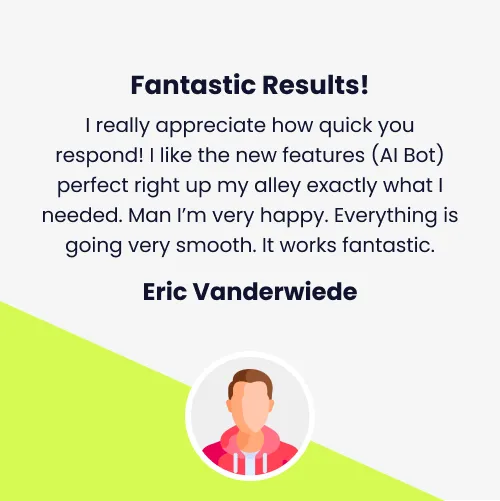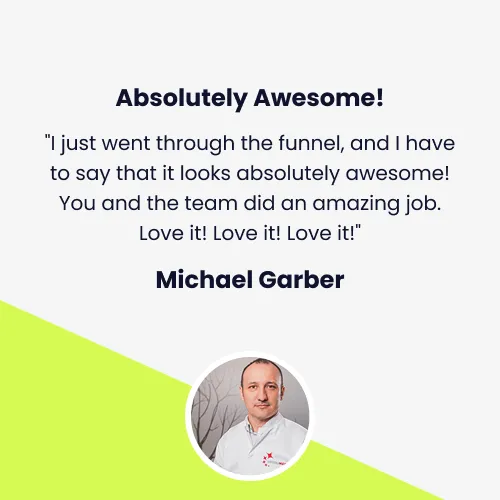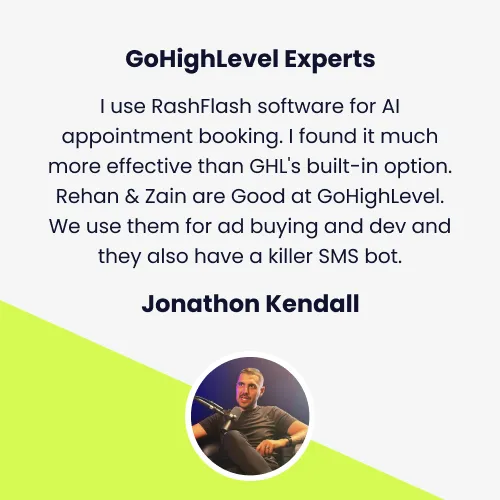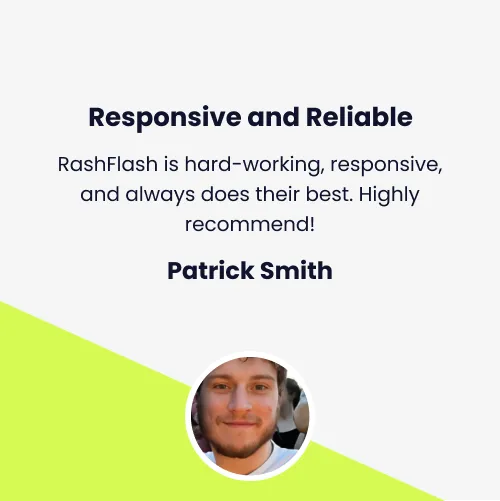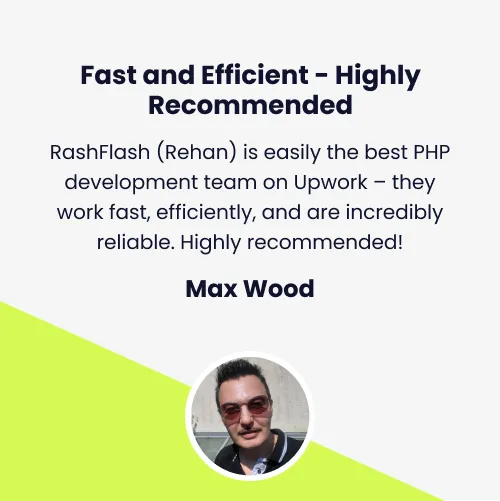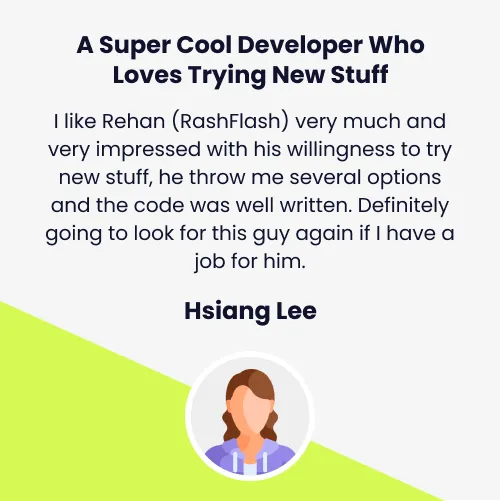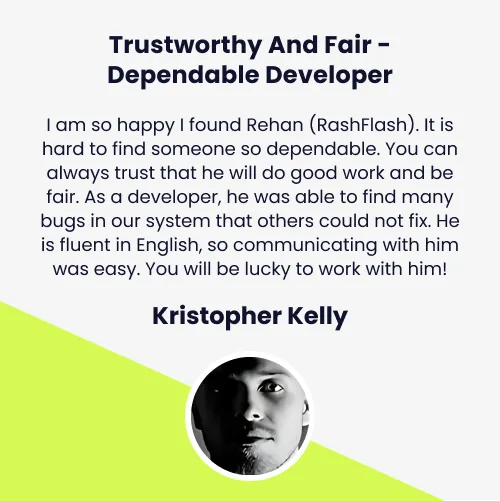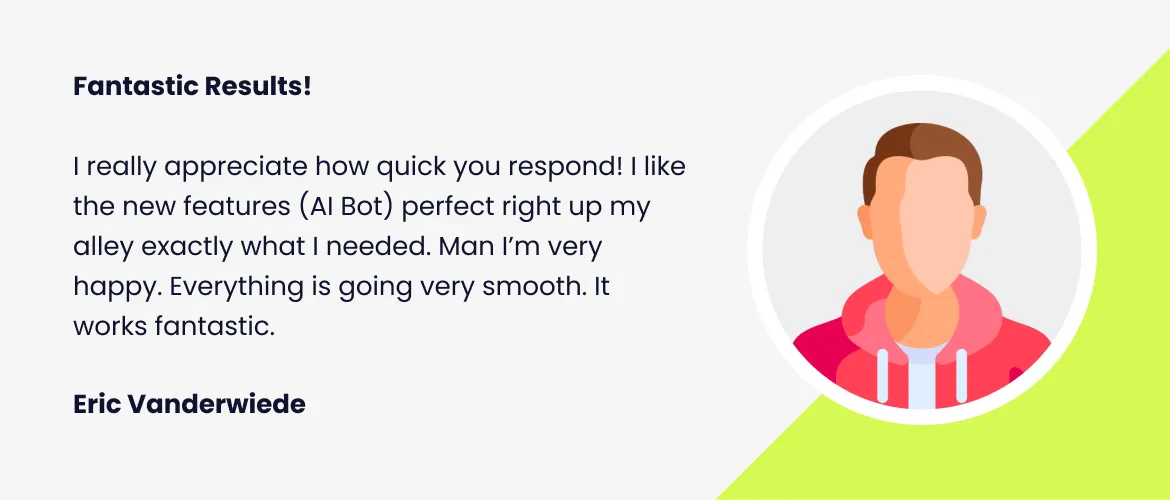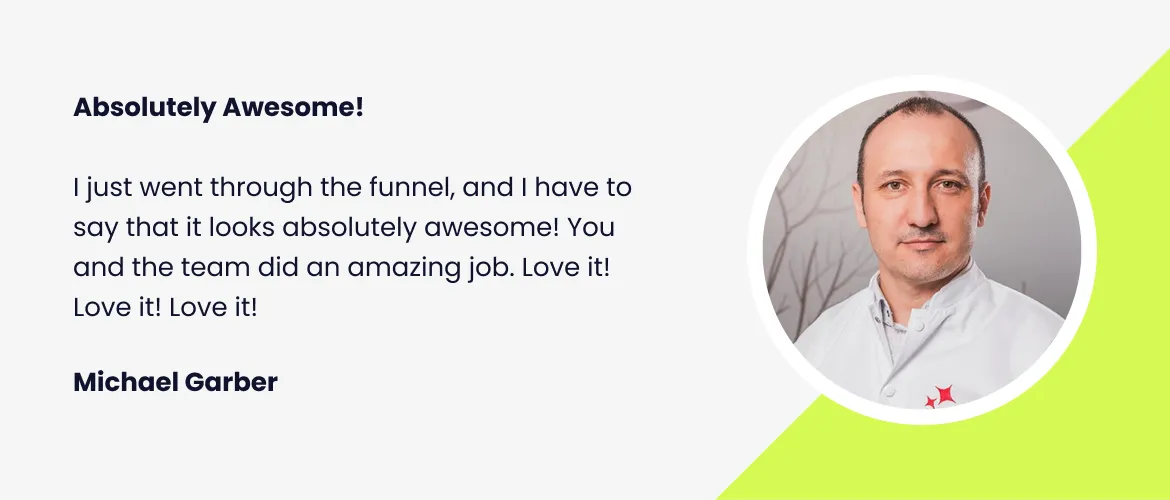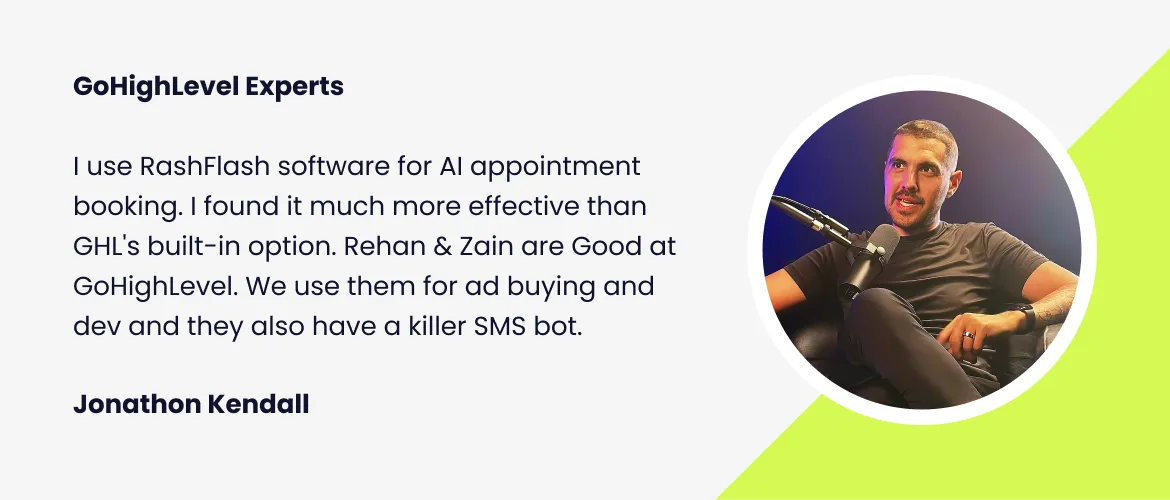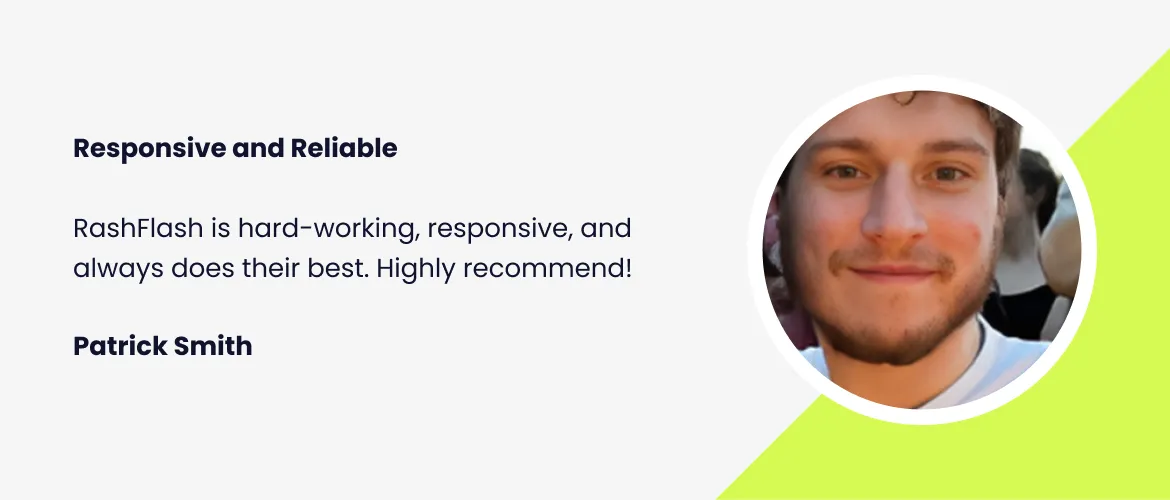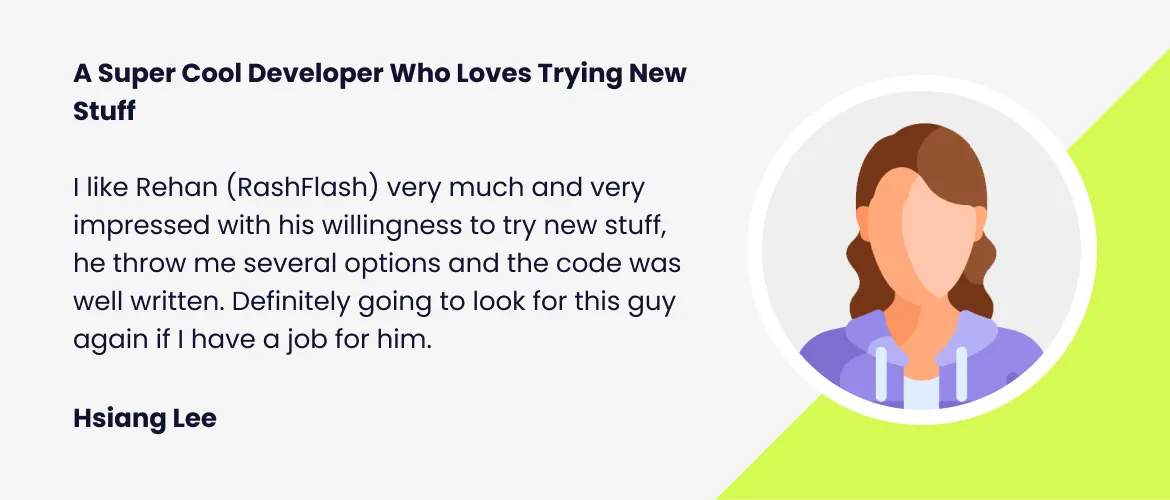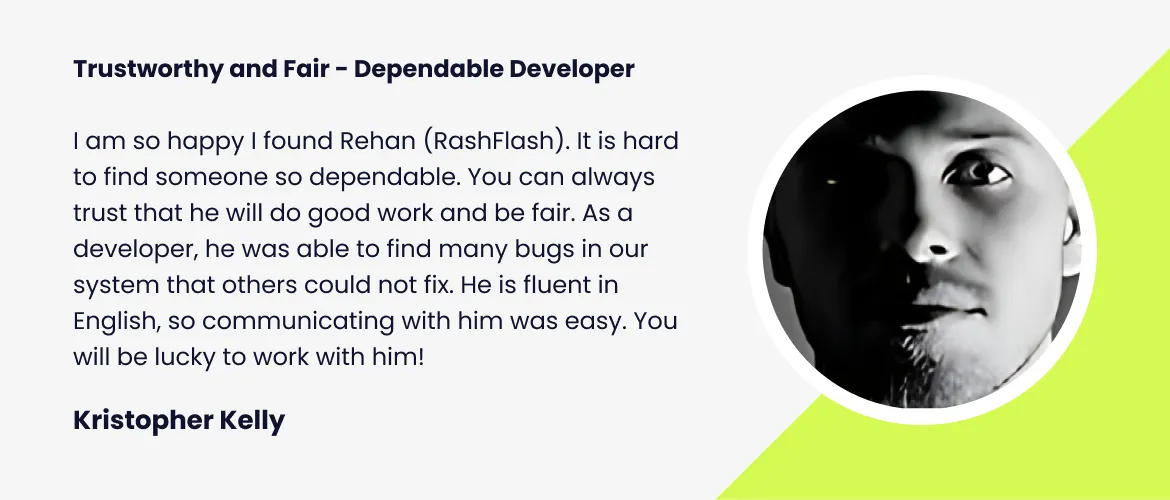34 N Franklin Ave Ste 687#1936 Pinedale, WY 82941


Too Busy to Handle Tech and Marketing Tasks?
Let us handle your tech setup and marketing with smart, AI-driven solutions that free up your time
Our Clients














Our Clients












Unleash Your Potential With Our
Comprehensive Services
Web Development
And Design
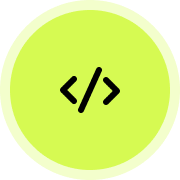
Digital And
Email Marketing

Ecommerce Store & Sales Funnel Creation

Graphic Design
& Video Editing
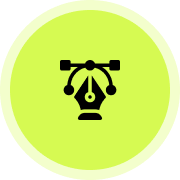
Introducing Our Featured Products

RashFlash AI
ChatBot
Empower Your GoHighLevel
Experience Around the Clock

RashFlash Voice AI
Let an AI-Powered Voice Assistant Call, Follow Up & Book Clients for You — 24/7

Pitch Deck
Investor-Ready, Professionally Designed Pitch Decks That Win You Funding
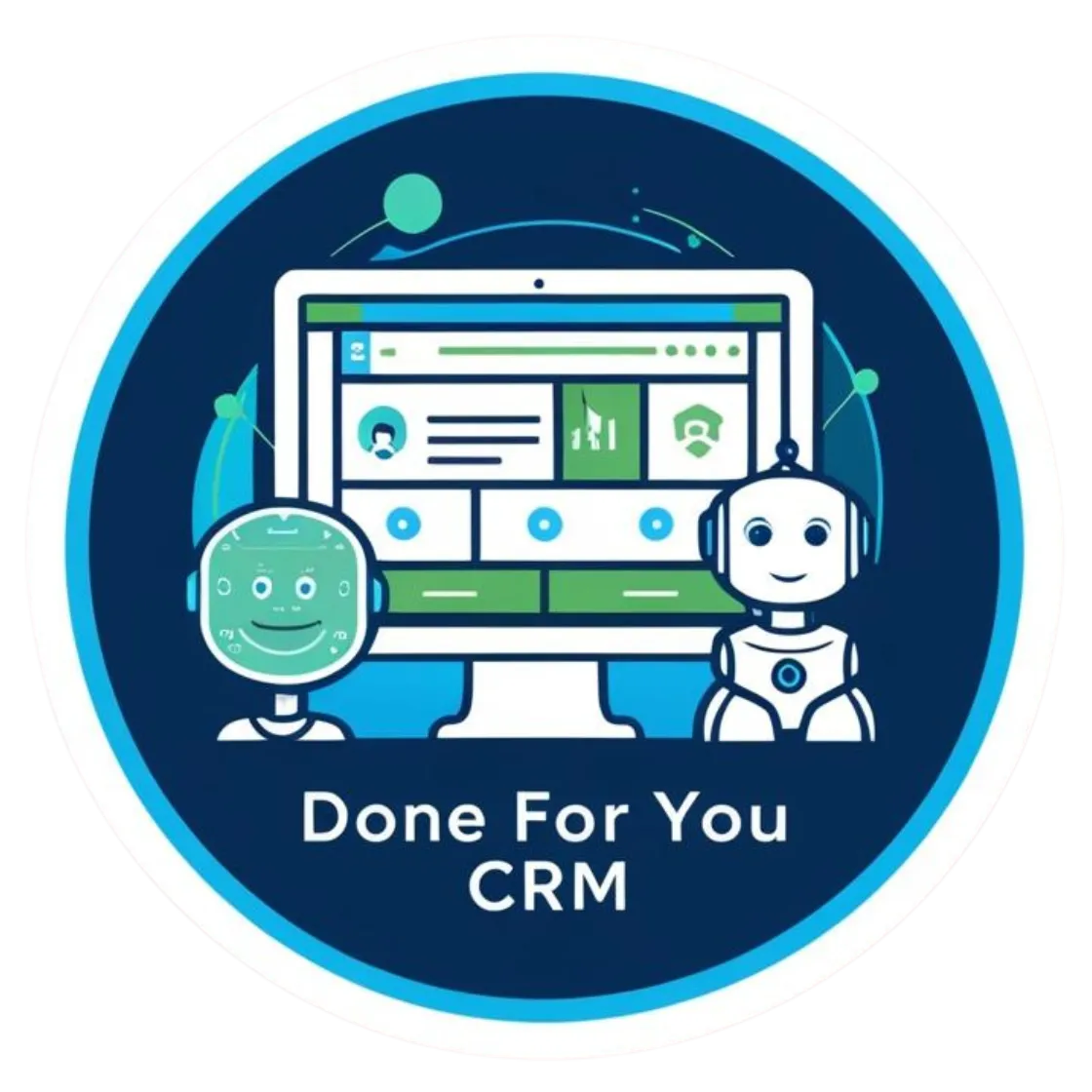
Done For You CRM
Get a Fully Managed Website,
AI Bot, and Lead Management System
Showcasing Success of 20+ Thriving Brands
We pride ourselves on driving results for our clients. From enhancing online presence to skyrocketing sales, we’ve partnered with over 20 brands to help them achieve their goals.

Law Offices Of Rebecca Elayache
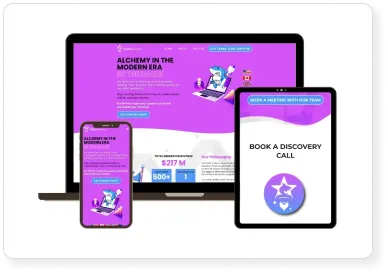
All Star Clients

Laine Consulting Services
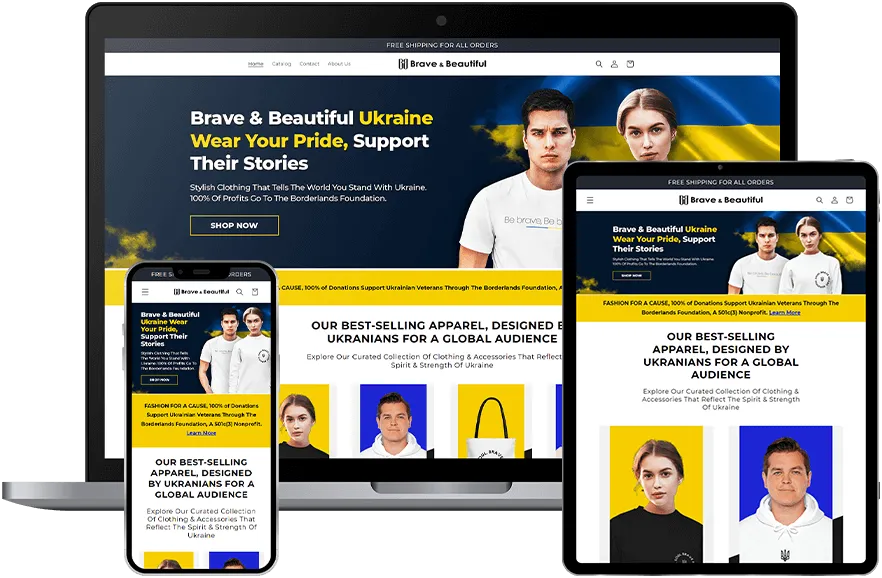
Brave & Beautiful Shopify Store
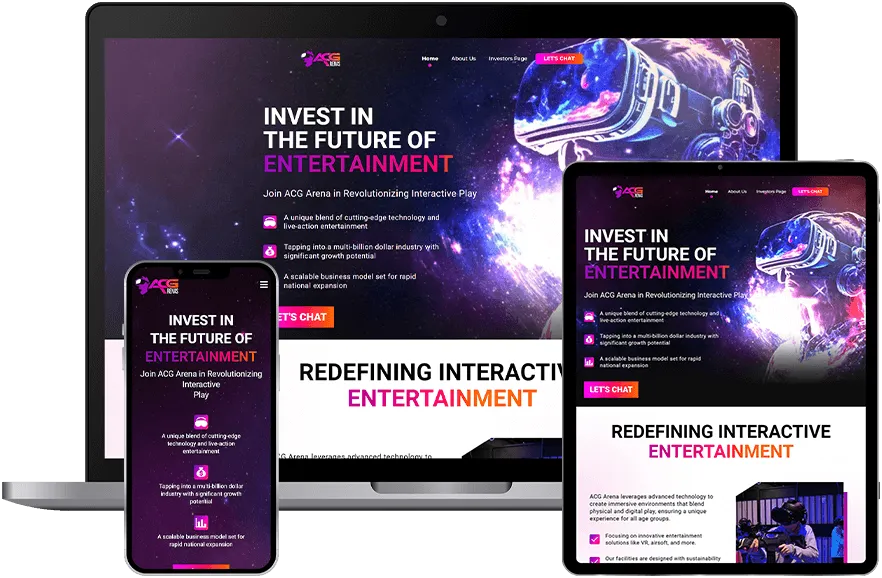
ACG Arenas

DealRaise Capital
Meet Our Experienced Team
Over the years, RashFlash has grown from a one-man operation to a full-fledged team of experts.
In 2019, we welcomed our co-founder, Zain Tanvir, whose expertise in technologies and strategic planning has been instrumental in our growth.

Muhammad Rizwan
Sr. Graphic Designer

Chaudhry Talha
Digital Marketing Expert

Ameer Hamza
Sr. Video Editor
Your Success Is Our Success
We're dedicated to your success. Our team is always ready to go the extra mile to ensure your satisfaction. So bring us your ideas, and let's make them a reality together.
Welcome To RashFlash Your Partner In
Online Success
Who We Are
At RashFlash, our mission is to craft impactful digital experiences. This vision is brough to life by our founders, Rehan Khalid & Zain Tanvir
Rehan Khalid - With 13 years in web development and 9 years in digital marketing, Rehan is the driving force behind our innovative digital solutions. His expertise has powered projects from sleek small business sites to robust e-commerce platforms.
Notably, he has been instrumental in managing Tai Lopez's successful funnels for 9 years, showcasing his prowess in digital strategy and execution.
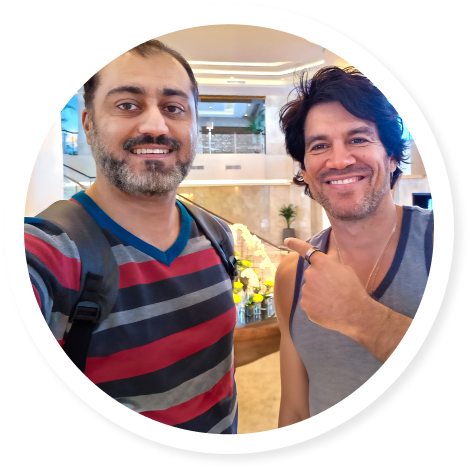

Zain Tanvir - As our Co-Founder and CTO, Zain leverages over five years in Retail Tech and experiences with major U.S. eCommerce brands like Pier 1, Dressbarn and Bodybuilding.com.
His journey from backend developer to Technical Project Manager imbues him with a unique mix of technical and managerial skills. This expertise, combined with Rehan Khalid's insights, drives RashFlash's innovation in delivering top-notch digital solutions.
Zain Tanvir - As our Co-Founder and CTO, Zain leverages over five years in Retail Tech and experiences with major U.S. eCommerce brands like Pier 1, Dressbarn and Bodybuilding.com. His journey from backend developer to Technical Project Manager imbues him with a unique mix of technical and managerial skills. This expertise, combined with Rehan Khalid's insights, drives RashFlash's innovation in delivering top-notch digital solutions.

Our Clients
Speak For Us
Our Client Speak For Us
Our Clients Speak For Us

"High Quality, Fast Delivery"
"I highly recommend working with RashFlash because their communication is great, they get the work done fast and projects are completed with high quality following best practices." - ScalableConversions


"Fast, Responsive, and Reliable"
"I loved working with rashflash. They were fast, responsive, always helpful and delivered our website in ghl quickly with very little changes. I would 💯 work with the team again, it was a pleasure, they accommodate our time zone as well." - Alice Bazdikian


"Absolutely Awesome!"
"I just went through the funnel, and I have to say that it looks absolutely awesome! You and the team did an amazing job. Love it! Love it! Love it!" - Michael Garber


"GoHighLevel Experts"
"I use RashFlash software for AI appointment booking. I found it much more effective than GHL's built-in option. Rehan & Zain are Good at GoHighLevel. We use them for ad buying and dev and they also have a killer SMS bot." - Jonathon Kendall (DealRaise , BookDaddy)


"Responsible and Reliable"
"RashFlash is hard-working, responsive and always does their best. Highly recommend!" - Patrick Smith


"Fast and Efficient - Highly Recommeded"
"RashFlash (Rehan) is easily the best PHP development team on Upwork - they work fast, efficiently, and are incredibly reliable. Highly Recommended!" - Max Wood


"A Super Cool Developer Who Loves Trying New Stuff"
"I like Rehan (RashFlash) very much and very impressed with his willingness to try new stuff, he throw me several options and the code was well written. Definitely going to look for this guy again if I have a job for him" - Hsiang Lee


"Trustworthy and Fair - Dependable Developer"
"I am so happy I found Rehan (RashFlash). It is hard to find someone so dependable. You can always trust that he will do good work and be fair. As a developer, he was able to find many bugs in our system that others could not fix. He is fluent in English, so communicating with him was easy. You will be lucky to work with him!" - Kristopher Kelly


"Fantastic Results!"
"I really appreciate how quick you respond! I like the new features (AI BOT) perfect right up my alley exactly what I needed. Man I'm very happy. Everything is going very smooth. It works fantastic." - Eric Vanderwiede

FAQs
What services does RashFlash provide?
RashFlash is an all-in-one online solution provider. We offer a wide range of services including web development, web design, ecommerce store setup, sales funnel creation, digital marketing, graphic design, video editing, customer support, executive assistance, email marketing, content creation, and talent hiring.
What is the Talent Hiring Suite?
Our Talent Hiring Suite is a comprehensive service that helps businesses find the right talent. We offer a wide range of services from hiring fresh candidates to experienced professionals. We also provide 24/7 coverage and can help set up and manage remote offices or teams.
What are RashFlash's pricing?
Our rates are competitive and vary depending on the service. For our Talent Hiring Suite, rates start as low as $10/hour for fresh candidates to up to $50/hour for candidates with over 10 years of experience.
How can I contact RashFlash?
You can contact us through the form on our Contact Us page. Once we receive your information, one of our team members will be in touch to discuss your needs in more detail.
Who are the founders of RashFlash?
RashFlash was founded by Rehan Khalid in 2013. Zain Tanvir joined as a co-founder in 2019. Both bring a wealth of experience and expertise to the company.
What is RashFlash's privacy policy?
We take your privacy seriously. You can read our full privacy policy on our Privacy Policy page. If you have any questions or concerns about our privacy practices, please contact us.
How do I get started with RashFlash?
To get started with RashFlash, simply contact us to schedule a consultation. Our team will discuss your ecommerce goals, assess your needs, and provide you with a customized proposal outlining the services that will best suit your business.
Latest Articles

Power and Prediction: How AI is Revolutionizing Business Decision-Making in 2025
When Predictions Change Everything
Imagine running a hospital. Every day, doctors make hundreds of decisions about patient care. Which tests should they order? Which patients need immediate attention? Who can safely go home?
Now imagine something changes. Suddenly, predicting which patients will get sicker becomes almost free. You can know with 95% accuracy who needs help before they even know they're sick. Everything changes, right?
This is the central idea of "Power and Prediction: The Disruptive Economics of Artificial Intelligence" by Ajay Agrawal, Joshua Gans, and Avi Goldfarb. These three economists from the University of Toronto show us something most people miss: AI doesn't just make predictions better—it completely changes how businesses should make decisions.
Who Wrote This Book and Why It Matters
The authors aren't typical tech writers. They're economists who study how new technologies change markets. Ajay Agrawal founded the Creative Destruction Lab, which has helped over 500 AI startups. Joshua Gans studies how industries transform. Avi Goldfarb researches digital economics.
Together, they spent years watching companies struggle with AI. They noticed something odd: businesses with great AI predictions often failed. Meanwhile, some companies with simpler AI systems succeeded. Why?
The answer surprised them. Success wasn't about having the best predictions. It was about understanding how cheap predictions change everything else.
The Big Idea: Splitting Decisions Apart
Here's what most people get wrong about AI. They think it just makes better predictions. The authors show us something deeper.
Every business decision has three parts:
- Prediction - What will happen?
- Judgment - What matters most?
- Action - What should we do?
Before AI, these three things were stuck together. Doctors predicted AND judged AND acted, all at once. Now AI can handle predictions. This splits everything apart.
Think about loan approvals. Banks used to train people to predict who would repay loans AND decide who deserved loans AND approve applications. Now Upstart, an AI lending company, separates these steps. AI predicts repayment. Humans decide what "fair lending" means. The system combines both.
Result? Upstart approves 27% more borrowers than traditional banks while keeping default rates the same. They helped over 2 million people get loans who might have been rejected elsewhere.
Three Ways AI Changes Business Decisions
Change One: Point Solutions Don't Last
Most companies start with "point solutions." They use AI to fix one problem. A retail store might use AI to predict which products will sell. Sounds good.
But the authors warn: point solutions create temporary advantages. Why? Because your competitors can copy them.
Starbucks learned this lesson. They built Deep Brew, an AI system that predicts customer orders. At first, it gave them an edge. They could stock the right products and reduce waste. But then every coffee shop started using similar systems.
The real question became: what should Starbucks do with perfect predictions? They used their AI to redesign their entire ordering process. Now the AI predicts wait times, suggests menu items, and helps employees work faster. They didn't just predict better—they changed how they operate.
Change Two: System Solutions Win
Winners don't just add AI to existing processes. They rebuild everything around cheap predictions.
Look at Walmart. They didn't just use AI to predict demand. They created an entirely new supply chain system. Their AI predicts what each store needs. But more importantly, it changed how they think about inventory.
Old way: Keep extra stock "just in case."
New way: Stock less but predict exactly when you'll need more.
This shift saved Walmart billions. But it only worked because they changed their whole system—warehouses, trucks, store layouts, everything. According to their 2023 annual report, AI-driven inventory management reduced waste by 30% and improved product availability by 20%.
Change Three: Judgment Becomes More Valuable
Here's something unexpected: when predictions get cheap, human judgment becomes MORE valuable, not less.
The authors share a story about Ochsner Health, a large healthcare system. They built AI that predicts which patients might have sepsis, a deadly infection. The AI is 85% accurate—better than most doctors' guesses.
But they discovered something surprising. The AI worked best when paired with experienced nurses. Why? Because the nurses provided judgment. The AI said "this patient might have sepsis." The nurses decided "yes, that makes sense given their other symptoms" or "no, something else is going on."
Ochsner found that AI predictions plus nurse judgment reduced sepsis deaths by 18%. AI alone or nurses alone couldn't match that result.
Real Companies Making This Work
Amazon: Rebuilding Retail
Amazon shows what happens when you rebuild everything around predictions. Their AI doesn't just predict what you'll buy. It predicts when you'll buy, where you are, how fast you want it, and how much you'll pay.
They use these predictions to redesign retail:
- Products ship before you order them (anticipatory shipping)
- Prices change based on predicted demand
- Warehouses stock items near people likely to buy them
- Delivery routes optimize for predicted traffic
Amazon's CEO Andy Jassy noted in 2024 that AI-driven logistics improvements saved the company over $3 billion annually while making deliveries 30% faster.
UPS: Rethinking Delivery
UPS built ORION, an AI system that predicts the best delivery routes. But the real innovation wasn't the predictions—it was how they changed their entire operation.
They rebuilt:
- How trucks load packages
- Which drivers get which routes
- Where they place warehouses
- When they hire seasonal workers
The system now handles 21 million packages daily. It saves 100 million miles of driving each year. That's $400 million saved and 100,000 metric tons less carbon emissions.
Cleveland Clinic: Healthcare Decisions
Cleveland Clinic uses AI to predict patient deterioration. Their system watches vital signs and predicts which patients might crash in the next few hours.
But they learned something important: giving doctors predictions alone didn't help. Doctors got overwhelmed with alerts. So Cleveland Clinic changed their entire response system:
- Rapid response teams stationed near high-risk patients
- Protocols for different prediction levels
- Training for nurses on using predictions
- New communication systems
Results? They prevented over 1,000 cardiac arrests in two years. But only after they rebuilt their systems around the predictions.
What This Means for Your Business
For Business Leaders
Stop asking "where can we add AI?" Instead ask: "if we could predict anything perfectly, how would we operate differently?"
A clothing retailer might predict perfect demand. But the real question is: would you still need physical stores? Would you manufacture differently? Would you hire different people?
Zara, the fashion retailer, answered these questions. Their AI predicts fashion trends. But they used those predictions to completely redesign how they make clothes. Now they can design, manufacture, and ship new styles in three weeks instead of six months. This "fast fashion" model generates $23 billion in annual revenue.
For Tech Professionals
Build systems, not tools. Your AI prediction is just the beginning. The real work is redesigning processes around those predictions.
Netflix engineers understand this. Their recommendation AI is famous. But what made it valuable wasn't the predictions—it was rebuilding Netflix around them:
- Green-lighting shows based on predicted viewership
- Creating different thumbnails for different users
- Deciding which content to license
- Planning when to release episodes
Netflix reports their recommendation system influences 80% of viewing and saves them $1 billion yearly by reducing subscriber churn.
For Everyone Else
Understand that AI changes power structures. When predictions get cheap, new questions matter:
- Who decides what predictions matter?
- Who judges what the predictions mean?
- Who controls the data that trains predictions?
These aren't technical questions. They're business questions. And increasingly, they're questions about fairness and values.
The Challenges Nobody Talks About
Challenge One: The Judgment Problem
When AI makes predictions, humans must provide judgment. But what is good judgment? Who decides?
LinkedIn faced this with their job recommendations. Their AI predicted which jobs users might want. But "might want" and "should see" are different things.
They had to build judgment into the system: Should they show jobs that match your current skills or jobs that stretch you? Should they prioritize pay or job satisfaction? Should they favor local jobs or remote opportunities?
LinkedIn created a framework where users and the company together provide judgment. Users signal what matters through their actions. LinkedIn sets boundaries on fairness and privacy. The AI operates within these judgments.
Challenge Two: The Transition Problem
Moving from old systems to AI-powered systems is hard. The authors call this the "between state"—when you have predictions but haven't rebuilt systems yet.
General Motors experienced this with their Cruise self-driving cars. They can predict driving situations well. But they operate in a world designed for human drivers. Traffic laws, insurance, and roads all assume humans make decisions.
The between state creates problems. Self-driving cars that follow all rules frustrate human drivers. Cars that break rules feel unsafe. GM learned they need to help rebuild the entire transportation system, not just build better cars.
Challenge Three: The Privacy Problem
Better predictions need more data. More data means more privacy concerns. The authors don't have easy answers, but they show companies finding balance.
Apple built "differential privacy" into their AI. They make predictions about users without collecting individual data. It's less accurate than Google's approach, but more private. Apple chose judgment about privacy over perfect predictions.
Key Takeaways
AI's power comes from making predictions cheap: When something that was expensive becomes nearly free, everything changes.
Point solutions don't create lasting advantage: Competitors can copy single AI features. System redesigns are harder to match.
Predictions and judgment are different: AI provides predictions. Humans must still provide judgment about what matters.
Winners redesign entire systems: The biggest benefits come from rebuilding operations around cheap predictions, not adding AI to existing processes.
Transitions are hard: Moving from old systems to AI-powered systems creates temporary problems that need management.
Privacy and fairness matter more: As predictions improve, questions about data collection and fair use become more important.
Human judgment becomes more valuable: When machines handle predictions, human judgment about goals and values matters more, not less.
Looking Forward
The authors see a future where prediction is essentially free. What happens then?
Industries will reorganize around three questions:
- What predictions matter most?
- Who provides judgment about what those predictions mean?
- How do we rebuild systems to use predictions effectively?
Companies answering these questions will thrive. Those just adding AI features will struggle.
This isn't about technology. It's about reimagining how business works when you can predict almost anything. The power isn't in the predictions themselves—it's in knowing what to do with them.
Business leaders who understand this split between prediction and judgment will build the successful companies of tomorrow. Those who don't will wonder why their AI investments aren't paying off.
The future belongs to organizations that can combine machine prediction with human judgment. Not just using AI, but rebuilding everything around it. That's the real power of prediction.
Ready to transform how your organization makes decisions? Visit rashflash.ai to discover how our AI solutions help you separate prediction from judgment and rebuild your business systems for the AI age. We don't just provide predictions—we help you design entire systems that put those predictions to work.
The question isn't whether AI will change your industry. It's whether you'll lead that change or follow others who understood the power of prediction first.
References
Upstart lending statistics: Upstart Holdings, Inc. Annual Report (2023), SEC Form 10-K
Walmart inventory improvements: Walmart Inc. Annual Report (2023), Financial Year Results
Ochsner Health sepsis outcomes: "Reducing Sepsis Mortality Through Early Detection," Journal of Healthcare Quality (2022)
Amazon logistics savings: Amazon.com, Inc. Q4 2023 Earnings Call Transcript
UPS ORION savings: United Parcel Service Sustainability Report (2023)
Netflix recommendation value: "The Netflix Recommender System: Algorithms, Business Value, and Innovation," ACM Transactions on Management Information Systems (2022)
Zara fast fashion model: Inditex Annual Report (2023)

Small Call to Action Headline
Your Paragraph text goes Lorem ipsum dolor sit amet, consectetur adipisicing elit. Autem dolore, alias, numquam enim ab voluptate id quam harum ducimus cupiditate similique quisquam et deserunt, recusandae. here

Small Call to Action Headline
Your Paragraph text goes Lorem ipsum dolor sit amet, consectetur adipisicing elit. Autem dolore, alias, numquam enim ab voluptate id quam harum ducimus cupiditate similique quisquam et deserunt, recusandae. here

Small Call to Action Headline
Your Paragraph text goes Lorem ipsum dolor sit amet, consectetur adipisicing elit. Autem dolore, alias, numquam enim ab voluptate id quam harum ducimus cupiditate similique quisquam et deserunt, recusandae. here
Your Website Is your 24/7 Sales Person. Don’t Just Settle For An Ordinary One.
Go Beyond With RashFlash
Contact Information
USA OFFICE: 34 N Franklin Ave Ste 687#1936
Pinedale, WY 82941
+1 866-764-3091


